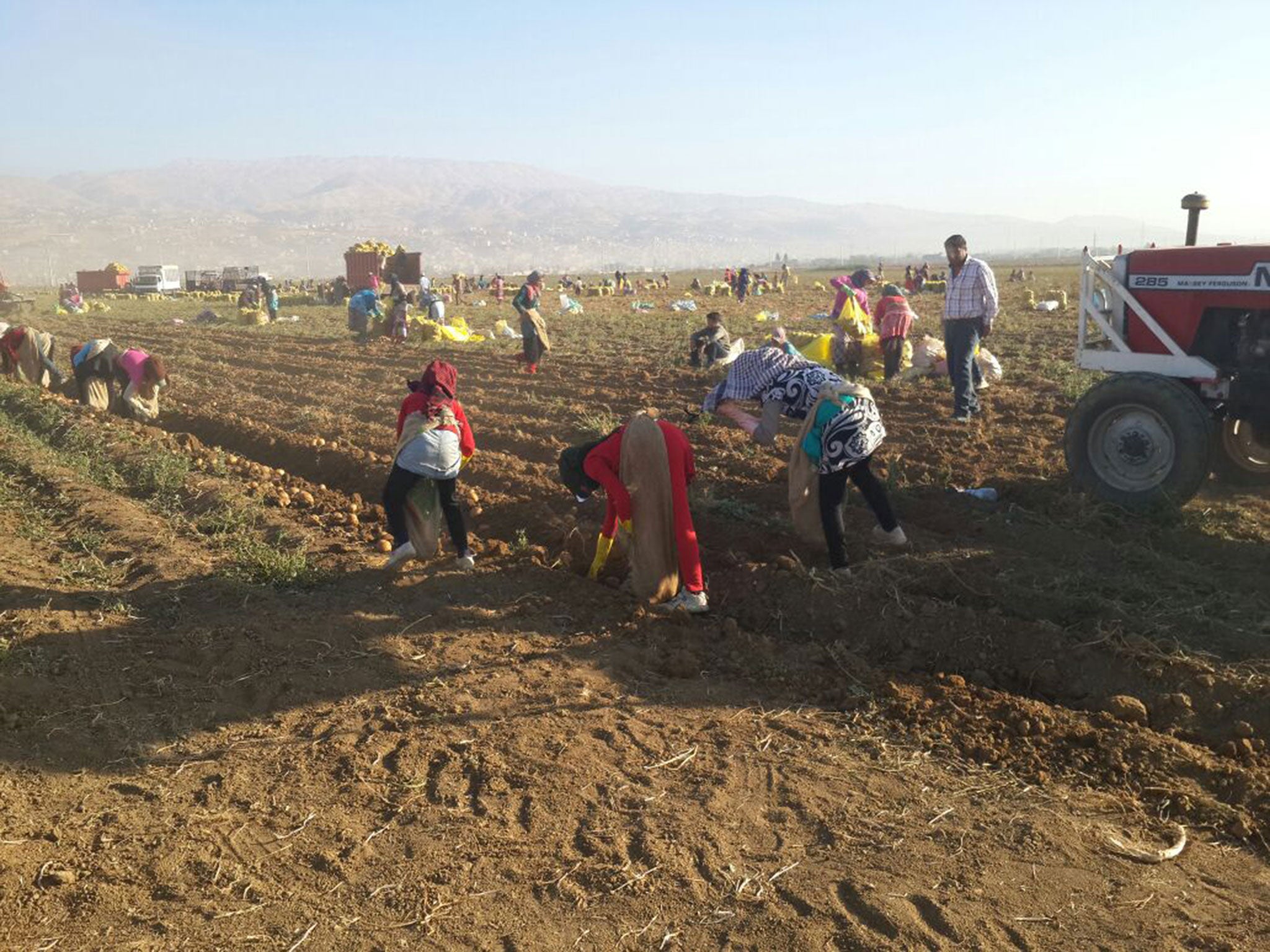War on Isis: As long as war rages in Syria, there will be no end to the refugees’ suffering
Syrian refugees now make up a quarter of the entire population of Lebanon

Your support helps us to tell the story
From reproductive rights to climate change to Big Tech, The Independent is on the ground when the story is developing. Whether it's investigating the financials of Elon Musk's pro-Trump PAC or producing our latest documentary, 'The A Word', which shines a light on the American women fighting for reproductive rights, we know how important it is to parse out the facts from the messaging.
At such a critical moment in US history, we need reporters on the ground. Your donation allows us to keep sending journalists to speak to both sides of the story.
The Independent is trusted by Americans across the entire political spectrum. And unlike many other quality news outlets, we choose not to lock Americans out of our reporting and analysis with paywalls. We believe quality journalism should be available to everyone, paid for by those who can afford it.
Your support makes all the difference.In recent weeks, the world has shown that it will not idly stand by while millions of people face the murderous rampage by the fanatics of Isis. Dozens of countries have formed a broad alliance to put a halt to Isis’s seemingly unstoppable advance. Arab nations in particular have taken on responsibility. This will be crucial in drying up political support for Isis and strengthen regional societies’ resistance to the ideologists of hatred and terror.
However, our response to the threat from Isis will fall short if we fail to address the unprecedented humanitarian disaster threatening the stability of the entire region, namely the refugee crisis caused by the war that has been raging in Syria for three and a half years.
Over three million people have fled Syria to neighbouring countries.
Syrian refugees now make up a quarter of the entire population of Lebanon. Only a small percentage live in refugee camps. Most have found shelter in towns and villages, amidst the local population, while hoping to be able to return home soon.
I feel deep respect for the hospitality and humanity shown by local communities. Their willingness to share commands our admiration.
However, host communities themselves are suffering hardship as a result of their hospitality towards the refugees. Their infrastructure, schools and hospitals are simply not able to cope with the huge number of arrivals.
Nor is there enough housing or work for so many people. This volatile situation is increasingly threatening social cohesion. The refugee crisis has thus itself become a risk to the security and stability of the region.
The international community is already helping those in need both in Syria and its neighbouring countries. Since the start of the crisis, over 70,000 people have found refuge in Germany, and the German Government has provided nearly 650 million euros in aid since 2012.
But this will not be enough. We have to face the hard truth that the conflict in Syria will not be over soon. It will be years before all of the refugees return home. Until then, we need to find new solutions to the pressing problems.
Today in Berlin, I have convened a meeting of the largest international donors and aid agencies as well as the countries most severely affected by the crisis. Our aim is to to join forces in supporting both the refugees and the communities that have taken them in.
Two points will be crucial: Firstly, we need to strengthen the host communities by investing in hospitals, schools, water supply and waste disposal in order to prevent a collapse of public services. This is not primarily a question of more money.
We must learn to use available funds more efficiently and sustainably by undertaking longer-term commitments and aligning our support more effectively with the host countries’ plans and needs.
Secondly, we need to prevent the refugees – half of whom are children or teenagers – from sinking into the kind of hopelessness and despair that makes them vulnerable to radicalisation and manipulation.
I will never forget my encounter with refugee children in a camp in the Beqaa Valley: amidst and despite all the despair, their eyes shining with hope. In their young lives, they have already lost so much. We must keep them from also losing hope and the prospect of a better tomorrow.
With the help of the host countries, we therefore need to make sure that refugees have access to quality education, that their status is secure and that they can obtain valid identity documents.
Make no mistake: as long as war rages in Syria, there will be no end to the refugees’ suffering, nor to the burdens inflicted on host communities. There is no quick fix.
Hopes for a breakthrough in political negotiations were disappointed in the past. But giving up is not an option. We must make a new effort towards a political solution for Syria. Our gathering in Berlin is therefore also an unequivocal pledge that the world will not forget Syria and its people.
Frank-Walter Steinmeier is the German Foreign Minister
Join our commenting forum
Join thought-provoking conversations, follow other Independent readers and see their replies
Comments